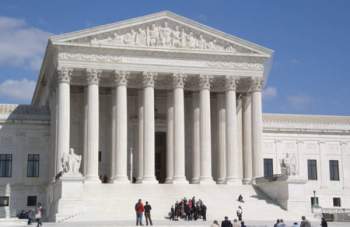
A Quick Overview of Federal Court

Must Read
What is the Federal Court?
The term Federal Court is often used to describe the court system present in the United States, which possesses jurisdictional powers at the national level. The Federal Court system thus oversees matters that concern the United States Constitution and the Federal laws, regulations and rules which govern the nation.
The Federal Court, through this definition, is held in contrast to the State court system, which is the judicial system that possesses jurisdiction over matters concerning the laws, rules and regulations of the individual states.
Levels of the Federal Court System
The Federal Court system consists of three distinct levels. The first or lowest level present in the Federal Court system contains the U.S. District Court. The District Courts in the United States are the trial courts of the Federal judicial system. The majority of Federal Court cases originate within this classification.
The middle level of the Federal Court system contains the U.S. Court of Appeals, which is subsequently divided into 12 regional or Circuit Courts. When a decision is made in the U.S. District Court, the parties present in the underlying case may request that the decision be reviewed by a three-judge tribunal in the United States Court of Appeals.
The Court of Appeals may subsequently choose to overturn a court decision of the lower system or have the case reviewed by the entire Circuit System. In addition, the Court of Appeals may also remand the case back to the District Court for a further review or do nothing and allow the previously rendered decision to stand as is.
The United States Supreme Court
The highest court present in the Federal Court system is the Supreme Court of the United States. The Supreme Court consists of a Chief Justice and eight Associate Justices. Each Associate Justice is appointed by the President of the United States and subsequently affirmed by the Senate.
According to the guidelines set by the United States Congress, the Supreme Court may review cases from the U.S. Court of Appeals and cases from State Supreme Courts that possess Federal implications.
In the United States, the Supreme Court is the highest court system and the last judicial forum to which a case may be appealed. As a result of its classification as the highest judicial body in the Federal Court system, no decision may be appealed in the Supreme Court. All decisions made in the Supreme Court stand as final.
The United States Supreme Court also has the ability to invalidate forms of legislation or actions of the Government which the Federal Court determines as unconstitutional. This direct power of the Supreme Court is known as “Judicial Review” and represents one of the predominant elements of the checks and balances system.
The United States Federal Government enables the United States Supreme Court with an influence and power that is typically not found in the judicial systems of other nations.
NEXT: Circuit Court Explained




















